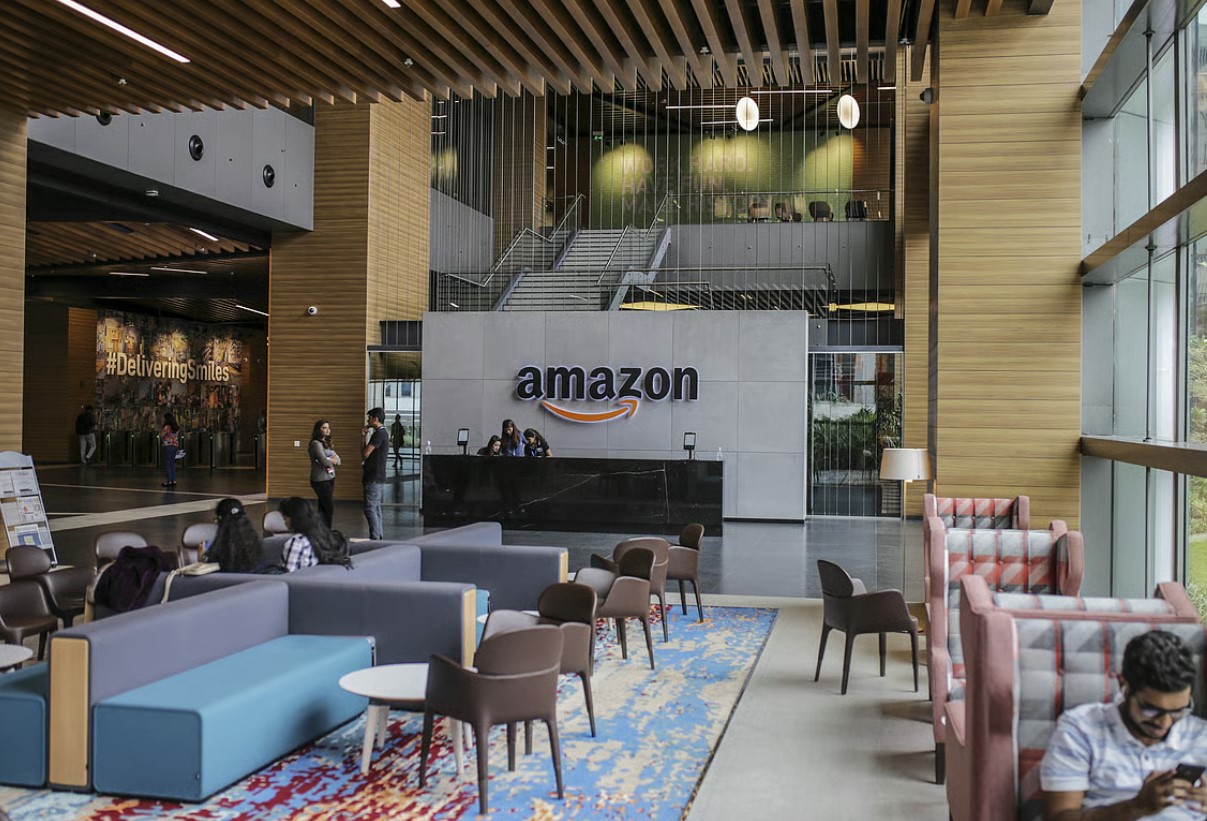Amazon India is once again under fire, with a wave of fresh criticism surfacing online about its internal work environment. This time, the backlash is louder, more personal, and drawing attention from both current and former employees who say the company’s relentless pace and unforgiving culture are taking a heavy toll.
Workers Say “Toxic” Is an Understatement
The spark came from a Reddit thread—but the fuel? That’s years of pent-up frustration. What began as one developer sharing their mental fatigue after spending five years at Amazon India snowballed into a cascade of similar accounts. Words like “toxic,” “mentally exhausting,” and “relentless” appeared repeatedly in dozens of comments.
One former engineer wrote: “You are constantly judged on only your weaknesses… always asked to push even more.” Their post, raw and tired, hit a nerve.
That developer wasn’t alone. Responses poured in:
“Being judged only on weakness is the absolute worst part of being [at] Amazon.”
“I left gracefully, but I felt the culture issues even outside India.”
The atmosphere being described? Think pressure cooker. Performance targets, peer comparison, and fear of getting placed under the dreaded PIP—a term employees have come to dread more than any performance review.

The Performance Improvement Plan: A Sword, Not a Lifeline
The infamous PIP—Performance Improvement Plan—came up again and again. And not in a good way. Employees liken it to a guillotine hanging by a thread. It’s supposed to be a development tool, but many say it’s used as a quiet exit strategy.
In fact, one user didn’t mince words: “Focus and PIP is always a sword kept right above your head.”
It’s not just Reddit saying this. The Verge, back in January 2024, published a damning report citing corporate insiders across Amazon. The system of ranking employees against each other—known informally as “stack ranking”—creates a perpetual state of anxiety.
That kind of environment doesn’t exactly scream support or growth. And for some, it’s just too much.
“Day 2 Company”: The Fallout of a Changing Amazon
Earlier this year, a LinkedIn post from a retiring Amazon India employee went viral. They didn’t sugarcoat it.
“Amazon is definitely a Day 2 company now,” they said—an ominous reference to Jeff Bezos’ concept of company decline. “Leadership principles? They’re fading. Long-term thinking? Gone. Ownership? What ownership?”
The employee pointed fingers at:
Mass layoffs.
Overworked middle management.
A culture that once inspired, now exhausting people into silence.
That post struck a nerve across LinkedIn and Slack groups. For older Amazonians, it felt like confirmation of what they’d feared for years. For newer ones, it was a reality check.
Paychecks vs Peace of Mind
Amazon’s compensation has always been a big lure. But some say it’s no longer enough.
An ex-employee shared they worked 60 hours a week. Despite earning less now, they feel richer—in time, in health, in sanity.
Their take? “If you factor in hours, I actually earn more now hourly than at Amazon.”
That realization seems to be hitting others too. On the same Reddit thread, several users shared that they took pay cuts just to regain control over their lives. It’s no longer about money—it’s about breathing room.
Amazon’s Official Line—and the Growing Gap
Amazon hasn’t responded to the latest social media flare-up. Not yet. But past statements suggest they’re sticking to the script.
In a 2023 interview with CNBC-TV18, a spokesperson said, “We have robust support systems in place… We ensure fairness and transparency in performance assessment.”
The company insists its culture promotes high standards and development. But on the ground—or rather, in the forums and chats—that story isn’t sticking.
Here’s what’s increasingly clear:
| Claim by Amazon | Employee Feedback |
|---|---|
| Transparent assessments | Stack ranking causes fear |
| Support for growth | PIP used to pressure exits |
| High performance culture | Burnout and disengagement |
The gap between corporate messaging and employee reality is growing too wide to ignore.
A Broader Problem, Not Just India
What makes this wave of criticism different? It’s not just localized.
While the latest storm erupted from India, voices from the U.S. and other Amazon locations chimed in. “I felt it here too,” one ex-U.S. employee wrote on Reddit.
The stress, the fear, the exhaustion—it’s not bound by geography. It’s cultural. Systemic. Structural.
And if Amazon’s leadership doesn’t address it soon, they could be facing a slow leak in the one thing every tech company needs: talent.

















